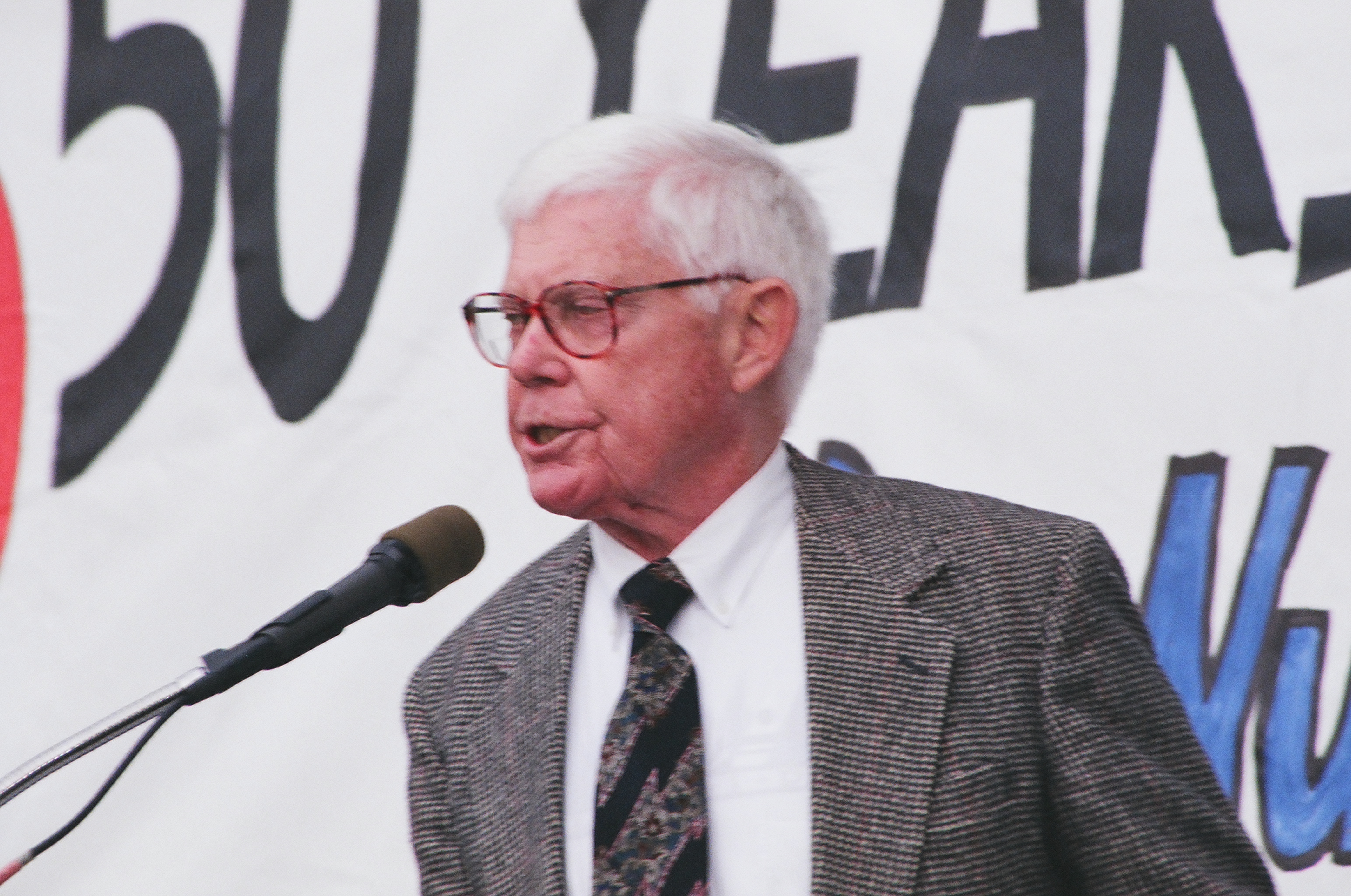Anderson, John B. 1922-2017
Enlarge text Shrink text- Congress and conscience, 1970.
- Golubovskis, G. M. Crazy dreaming--the Anderson campaign, 1980, c1981:t.p. (Anderson [in title]) pref. (John B. Anderson) p. 1 (John Anderson)
John Bayard Anderson (February 15, 1922 – December 3, 2017) was an American lawyer and politician who served in the United States House of Representatives, representing Illinois's 16th congressional district from 1961 to 1981. A member of the Republican Party, he also served as the Chairman of the House Republican Conference from 1969 until 1979. In 1980, he ran an independent campaign for president, receiving 6.6% of the popular vote. Born in Rockford, Illinois, Anderson practiced law after serving in the Army during World War II. After a stint in the United States Foreign Service, he won election as the State's Attorney for Winnebago County, Illinois. He won election to the House of Representatives in 1960 in a strongly Republican district. Initially one of the most conservative members of the House, Anderson's views moderated during the 1960s, particularly regarding social issues. He became chairman of the House Republican Conference in 1969 and remained in that position until 1979. He strongly criticized the Vietnam War as well as President Richard Nixon's actions during the Watergate scandal. Anderson entered the 1980 Republican presidential primaries, introducing his signature campaign proposal of raising the gas tax while cutting Social Security taxes. Anderson established himself as a contender for the nomination in the early primaries but eventually dropped out of the Republican race, choosing to pursue an independent campaign for president. In the election, he finished third behind Republican nominee Ronald Reagan and Democratic President Jimmy Carter. He won support among Democrats who became disillusioned with Carter, as well as Rockefeller Republicans, independents, liberal intellectuals, and college students. After the election, he resumed his legal career and helped found FairVote, an organization that advocates electoral reform, including an instant-runoff voting system. He also won a lawsuit against the state of Ohio, Anderson v. Celebrezze, in which the Supreme Court struck down early filing deadlines for independent candidates. Anderson served as a visiting professor at numerous universities and was on the boards of several organizations. He endorsed Green Party candidate Ralph Nader in 2000.
Read more on Wikipedia >
 Personality
Personality









